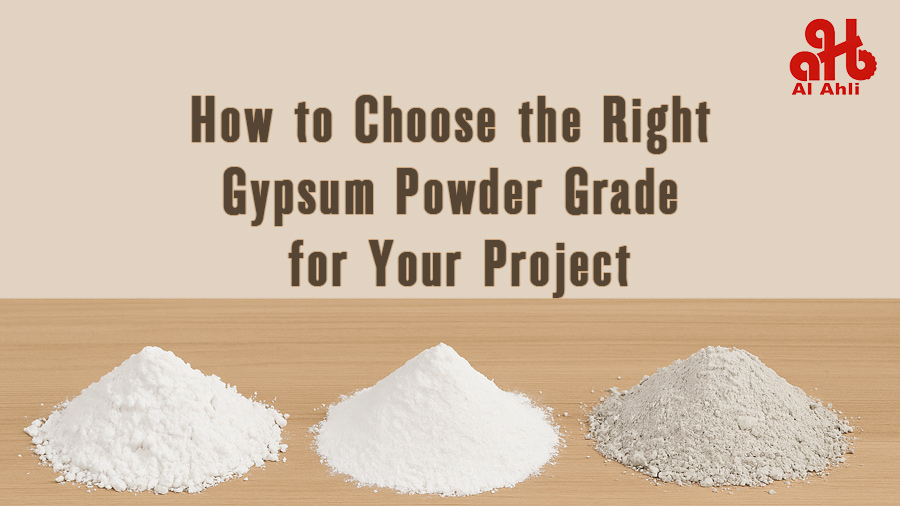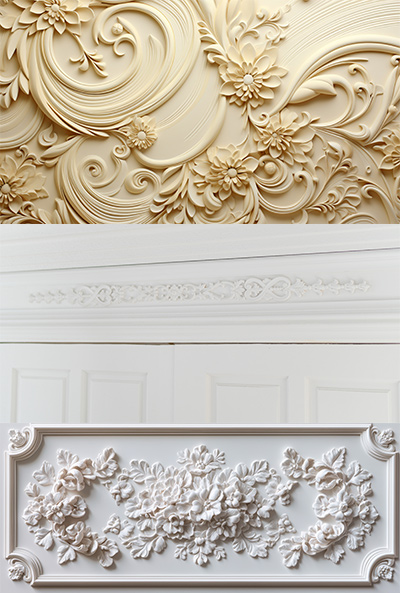Right Gypsum Powder Grade
Selecting the correct gypsum powder grade can be the difference between a smooth, successful outcome and a frustrating, costly mistake. Whether you’re a builder working on a large-scale construction site or a homeowner creating ceiling designs or wall finishes, understanding how different grades of gypsum powder function is crucial. Each grade is developed with specific applications in mind, and using the wrong one can impact quality, durability, and cost-efficiency.

What Does "Grade" Mean in Gypsum Powder?
The Gypsum Powder Grade refers to its quality level, defined by factors like purity, fineness, setting time, and sometimes the presence of performance-enhancing additives. Broadly speaking, gypsum powders fall into three categories: building grade, industrial grade, and agricultural grade. These categories are not interchangeable, and understanding the differences can help you avoid using a product that’s ill-suited for your project.
Choosing Building Grade for Construction Projects
For most indoor construction projects such as plastering walls, creating ceiling boards, or fabricating gypsum blocks, building-grade gypsum powder is the optimal choice. This type of gypsum powder is formulated to offer balanced setting times—usually around 25 to 30 minutes—making it ideal for quick turnaround while still providing enough time to work it into a smooth finish. The purity level is often above 85%, which ensures solid bonding with surfaces like bricks, concrete, or drywall.
In addition to its practical performance, building-grade gypsum also resists cracking and offers good workability. If you’re working on large walls or ceilings, this consistency helps maintain an even surface without the need for rework. It’s also commonly compatible with joint compounds and mesh tape, which makes it suitable for seamless finishes in drywall systems.

Using Industrial Grade for Detailed Work and Molds
When it comes to intricate work like moldings, decorative panels, or casting small-scale architectural elements, building-grade gypsum simply won’t cut it. Instead, industrial-grade gypsum powder is designed for these high-precision tasks. What sets this grade apart is its fineness and higher purity—typically over 90%—which allow for superior surface finishes and sharper detail retention in molds.
Industrial-grade gypsum also sets slower than its building counterpart, often requiring up to an hour to fully cure. This longer setting time is beneficial for artists, mold-makers, and designers who need more flexibility and time to shape the material. The end result is often whiter, denser, and smoother—perfect for ornamental use or applications requiring close tolerances and dimensional stability.
Agricultural Grade for Soil Improvement
While it may not be relevant to construction or design, agricultural-grade gypsum deserves a quick mention. It’s a low-purity version of gypsum intended not for structural applications but rather for farming. When applied to soil, it improves drainage, reduces compaction, and helps neutralize excess salts without altering pH levels. Farmers often use it to restore soil structure or to boost calcium and sulfur levels for crops.
This grade typically comes in coarser granules and isn’t suitable for any form of structural work, but it plays an essential role in sustainable farming and land reclamation.
Matching Grade with Project Requirements
Every project has unique requirements, and the ideal gypsum powder grade depends entirely on what you’re trying to achieve. If you’re finishing indoor walls or ceilings, a quick-setting building-grade product will likely save time and labor. If your goal is artistic or sculptural, the accuracy and smoothness of industrial-grade gypsum will ensure a better final appearance.
DIY hobbyists who work with casting, model-making, or even custom home decor might also find industrial-grade gypsum more forgiving, thanks to its slower curing time. On the other hand, professionals installing drywall systems benefit from the reliability and efficiency of building-grade material.
Consider Additives for Enhanced Performance
Some gypsum powders are enriched with additives to further tailor their performance. Retarders are often added to slow the setting time, especially useful in warmer climates or for larger jobs where more time is needed. Accelerators, on the other hand, speed up the curing process and are ideal for quick repairs or work in colder environments. In some advanced products, fibers (like glass fiber) are mixed in to increase strength, particularly in gypsum boards or prefabricated elements.
These enhancements don’t change the fundamental grade of the gypsum powder but do make it more specialized for certain conditions or performance needs. Always read product specifications carefully if you’re looking for these features.
Factors to Check Before Buying
When selecting gypsum powder, always inspect the product packaging or technical datasheet. Key details to confirm include setting time, purity level, intended use, and whether any additives are included.
If possible, especially for bulk purchases, request a sample and test it on a small surface area before full-scale application. This step can save significant time and expense by confirming compatibility and performance upfront.
Final Thoughts
Choosing the right gypsum powder grade isn’t just about buying a bag of white powder off the shelf—it’s about understanding your project’s needs and matching them with the right material. From wall plastering and ceiling installation to intricate decorative molding and even soil restoration, the right gypsum grade can dramatically impact your project’s outcome.
Take the time to learn about the different grades, consult your supplier when in doubt, and never underestimate the value of choosing quality over convenience. With the right gypsum powder in hand, your next project—big or small—has a much better chance of standing the test of time.

